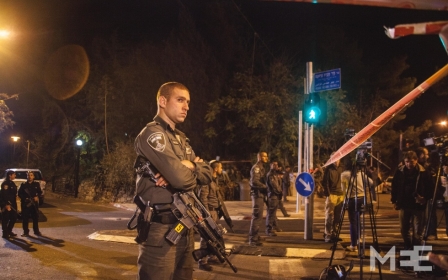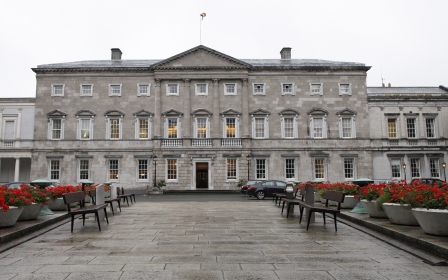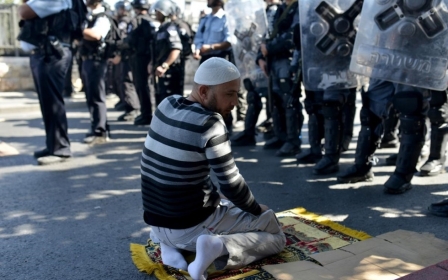Witnesses describe killing of 'unarmed' Hijazi by Israeli police in Jerusalem

Early this morning in the East Jerusalem neighbourhood of Abu Tor, Israeli police shot and killed Mutaz Hijazi, who they claim shot far-right settler Yehuda Glick last night.
Witnesses said that plain-clothes Israeli police in unmarked vehicles and uniformed police arrived before 6 am. They took positions around the house and stormed it. On the roof, Hijazi, 32, was shot dead.
Police officials claim that a firefight took place, however, witnesses dismissed the official narrative.
"I saw everything. He didn't have a weapon or a gun,” said one neighbour who spoke on condition of anonymity for fear of police reprisals. "He was on the roof, so the police could have captured him but they didn't want to. They wanted to kill him,” he added.
Several bullet holes pocked the wall on the roof where Hijazi was killed. A solar panel, visible in a photo taken said to have been taken shortly after his death, was riddled with bullet holes. Young boys showed journalists bullet casings they collected from the rooftop that were marked IMI, the acronym for Israeli Military Industries. Clouds of tear gas fired by nearby Israeli Border Police drifted through the neighbourhood.
Hijazi’s neighbour, Bellal Burqan, 23, watched from an adjacent house that overlooks the roof where Hijazi was killed. Burqan described a scene of massive police violence. “They were shooting everywhere,” he said. According to Burqan, after he was shot, police shot Hijazi in the head from point-blank range - a tactic known as “confirming the kill.”
Pointing to a broken electric drill on the rooftop that is visible next to Hijazi’s dead body in the photo, Burqan sarcastically remarked, “this is the only weapon he had.”
Police raided homes and arrested family members.
Raf Afif, a neighbour of Mutaz Hijazi, described the police raiding his home. “I heard the police break the door down and I hid inside the bathroom. They came in with guns and took me into another room, then went and killed Mutaz,” he said. “I couldn’t see whether Mutaz had a gun or not, but I don’t think he did,” he added.
“We were in our house when the police destroyed the front door and came in with dogs,” said Maram Hijazi, 23, Mutaz’s cousin. “They arrested my brother, sister and father, and kicked my brother and father,” she said.
Though many Israeli media agencies have declared that Hijazi was associated with Islamic Jihad, Maram Hijazi and her father doubted these claims. “From what we know, he didn’t belong to any political party,” she said. “We don’t believe in politics.”
“He used to want to be a police officer in the Palestinian Authority,” his uncle said. “But I advised him to stay out of politics.”
According to his family, Hijazi had been released from prison in 2010. “He was in solitary confinement for seven or eight years,” Maram Hijazi said. “He had some psychological trauma from jail, but I don’t think he wanted to take revenge for his time in prison.”
“He wanted to start a new life. He wanted to continue his education and get married,” his uncle said.
This evening, Israeli authorities informed the Hijazi family that their home will be demolished, leaving many homeless.
New MEE newsletter: Jerusalem Dispatch
Sign up to get the latest insights and analysis on Israel-Palestine, alongside Turkey Unpacked and other MEE newsletters
Middle East Eye delivers independent and unrivalled coverage and analysis of the Middle East, North Africa and beyond. To learn more about republishing this content and the associated fees, please fill out this form. More about MEE can be found here.




